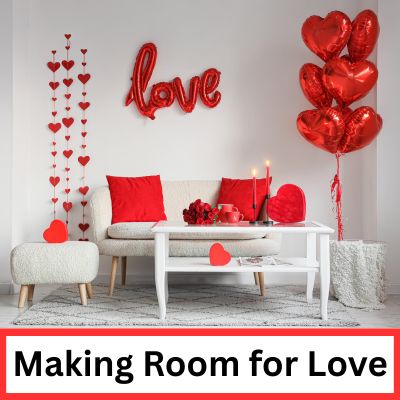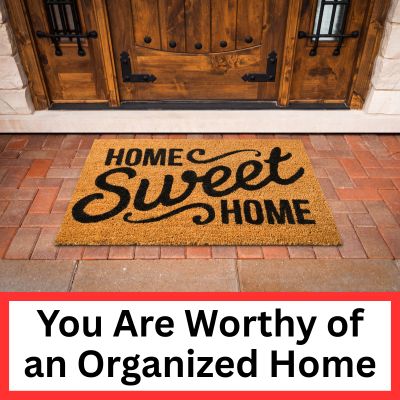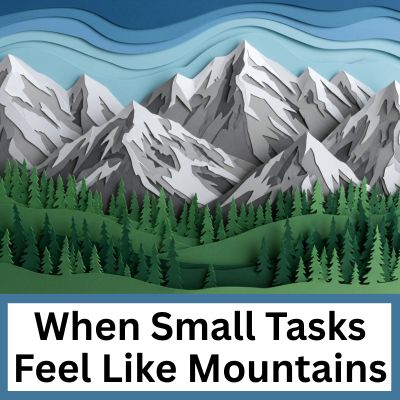Color to Declutter in Dominica
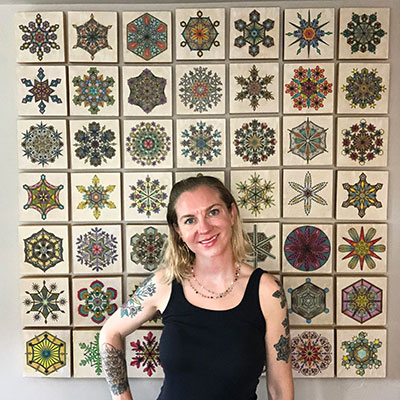
I am an avid Toastmaster, and June 30th, 2020 is/was the deadline for completing my Advanced Communicator Gold, so that I could still be eligible to become a Distinguished Toastmaster through their legacy program. I still need to coach a club and do my High Performance Leadership Project, but the deadline for those goals is next year. To make a long story short, I needed to do about 14 speeches in three weeks. So I emailed a few Toastmaster friends, posted on the International Facebook Group, and asked if I could be a guest speaker in any of their clubs. I got invitations to speak in clubs all over the country, and was a guest speaker at a really nice club in Florida. I also got invitations to speak at clubs all over the world- Belgium, Ireland, England, The Philippines, India, Saudi Arabia, New Zealand, and Dominica. Dominica?! Yes! Dominica is a small island in the Caribbean, not to be confused with The Dominican Republic (a totally different island). Huge thanks to the Nature Isle Club in Dominica! I highly recommend visiting this club, or visiting a Toastmasters club in another country. This was such a cool experience!
My assignment was out of the Entertaining Speaker Manual, Make Them Laugh. My book, Color to Declutter, is serious, but it’s also funny. I decided to do a speech related to that. I know jokes don’t translate well across cultures, even if there isn’t a language barrier. But will the clutter thing even be understood? One of the stereotypes of American’s is our over-consumption. There’s a famous decluttering book by a Japanese lady. There’s also a book written by a Swedish woman on Death Cleaning. At a NAPO conference, I met a Professional Organizer from Mexico. We had a conversation about clutter across cultures, but that was years ago. I started to search on Google, and all I could find were articles about America’s clutter problem. I contacted a Professional Organizer in Dominica to ask her. She said there was some clutter, but she mostly helped people organize their business clutter. Residential organizing is a concept she is pioneering there.
In the US, accumulation is a big problem for a variety of reasons. Here are a few surface level reasons:
-We have access to goods that are made cheaply, and thanks to companies like Amazon, we can get them delivered at rocket speed, with very little effort. Time Magazine did a great article about the history of consumerism in the US.
-Many American’s are addicted to convenience, we have been groomed for impatience, and we almost expect instant gratification.
-Then there the emotional needs for shopping- boredom, people feeling alone, and advertisements with messaging that reinforces feelings of not being good enough (without their product, that is!)
The Professional Organizing Industry is not directly correlated with consumerism though. Even though we do help people that just really like to shop, we also help people with more brain based challenges like ADHD, OCD, and Depression. We also help with many emotional challenges, like loss of a loved one or divorce. Then of course we help people with physical challenges. They know exactly what needs to be done, but aren’t physically capable of doing it.
Many books on home organizing provide logical advice. Sometimes it works, but many times, it can reinforce the differences between people that are “organized” and the people who aren’t, and leave readers feeling worse than before they read the book. I wanted my book to be different. And so that’s why I created Color to Declutter. Instead of directly addressing the problem of clutter, this book helps people on a different axis. It changes your brain so that you have more access to the parts of your brain that are necessary for organization. Neuroscience researcher, Dr. Joe Dispenza, does an excellent job of explaining how this phenomenon works, in his book Breaking the Habit of Being Yourself.
Coloring harmonizes the mind. It improves blood flow to the prefrontal cortex, which is the part of your mind responsible for creative thinking, decision making, memory and planning. Organizing your home will become easier, because you are rewiring your brain to a more harmonized state. Coloring soothes the amygdala, which is the fight/flight center of your brain. When highly activated, it’s impossible to create a calming environment around you. Because your outer world is a reflection of your inner world, if you are in a state of mental and emotional panic, that will be reflected in your surroundings. When you get the urge to check the news or your email “one more time” (especially before bed), you are likely to trigger your amygdala, and set worry or fear into motion. The more often your amygdala is triggered, or the longer you stay in that state, the stronger the habit is to stay stressed. When you are in a highly stressed state, you will have less access to your prefrontal cortex. This is the brain’s reward center. Studies have shown that the pleasure and process of creating art delivers a “reward” to the brain in the form of being proud of what you’ve accomplished, and the entertainment value. You’re less likely to seek rewards that may not be in your best interest, including snacking, drinking, shopping or screen time. These activities rarely lend themselves to an organized home.
It will be interesting to see how the coronavirus impacts global clutter. With some people hoarding resources, it brings whole new challenges to home organization. Then for the people who got really inspired to declutter during the Pandemic, with many donation centers closed, homes filled with bags of donation items added another layer onto the uncertainty of the situation. What about retail therapy? Shopping in stores is not as fun or relaxing as it once was (if you ever thought it was, that is!), if the stores are even open at all. It’s like you’ve got to get in and get out as quickly as possible. Some online retailers have been able to continue to have products on stock, and ship goods in a timely fashion. I know Amazon has had many items not in stock due to a variety of reasons including shipping, warehouse, and production delays. Then with the changes in the economy, it will be interesting to see how that shapes the accumulation of clutter.
What is the clutter culture like in your part of the world? Or if you’ve visited another country, what have you noticed? Send me an email at jean@seattlesparkle.com.
-Jean Prominski, CPO, ALB, ACG
NAPO: Certified Professional Organizer
Toastmasters: Advanced Leader Bronze and Advanced Communicator GOLD!!
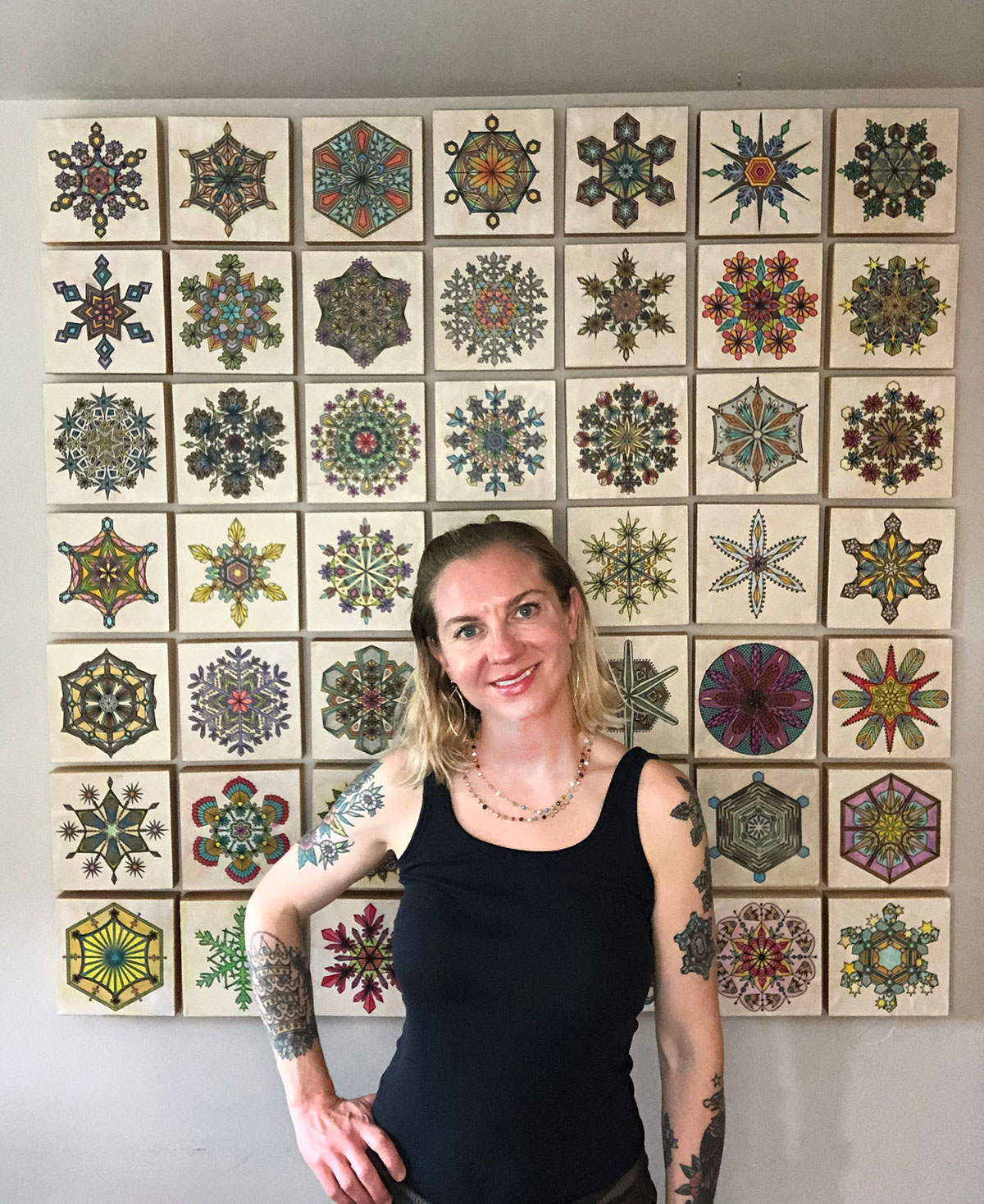
Sign up for my free 4 Day Color to Declutter Challenge.
Become part of a like-minded community by joining my Facebook Group, Declutter and Organize with Seattle Sparkle.
Ready to book a consultation? Complete this form.


